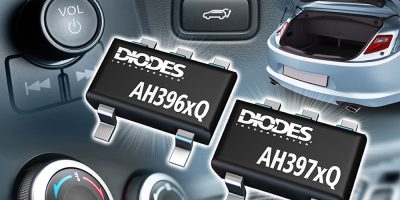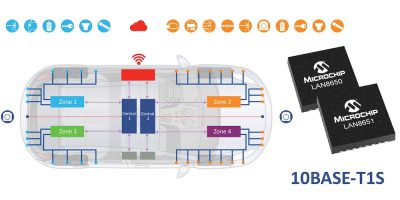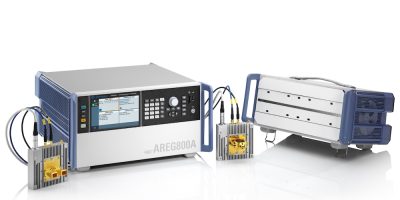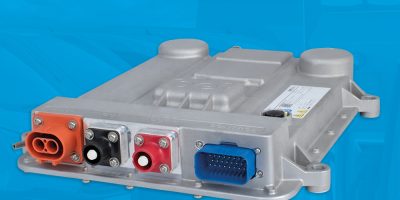For high voltage, automotive and industrial applications, the AH39xxQ series of Hall-effect sensors provide speed and directional data, said Diodes.
The high-voltage, dual output, automotive-compliant sensors provide accurate speed and directional data or two independent outputs. They are designed for industrial and automotive applications such as detecting rotational and linear speed/direction and determining the angular position of a rotating shaft.
They operate over a wide supply voltage range of 2.7 to 27V to meet automotive battery requirements. They also have a 40V absolute maximum rating, enabling them to safely handle 40V load dumps.
There is also -18V of reverse voltage protection to guard against incorrect battery connections.
For added robustness, the ESD (electrostatic discharge) protection exceeds the automotive norms of 5kV human body model (HBM) and 2kV charge device model (CDM).
Three BOP/BRP (operating/release) options are offered, with typical values of 10/-10, 25/-25 and 75/-75 Gauss and the narrow operating window ensures accurate and reliable switching points, confirmed Diodes.
Dual-channel operation means these sensors can replace two latch switches, reducing both PCB space and overall component costs. Combining chopper-stabilised amplifiers with an advanced Hall plate design mitigates switch point drift, ensuring accurate measurements over a broad temperature range.
The self-diagnostic features make the AH39xxQ sensors suitable for ISO 26262-compliant systems. There is also a safe operating mode which is entered if an error, such as over-temperature or under-voltage lockout, is detected.
The AH39xxQ series Hall-effect sensors from Diodes are AEC-Q100 Grade 0 qualified, manufactured in IATF 16949 certified facilities, and support PPAP (production part approval process) documentation.
They are supplied in TSOT25 packages.
Diodes supplies semiconductor products to the world’s leading companies in the automotive, industrial, computing, consumer electronics, and communications markets. Its product portfolio consists of discrete, analogue and mixed-signal products and packaging technology.
The company has worldwide operations of 32 sites, including engineering, testing, manufacturing.







